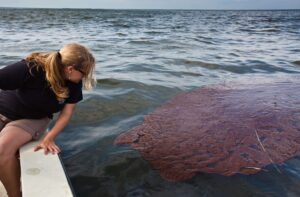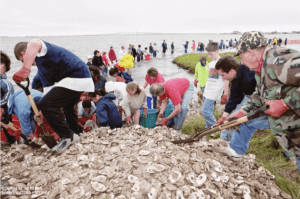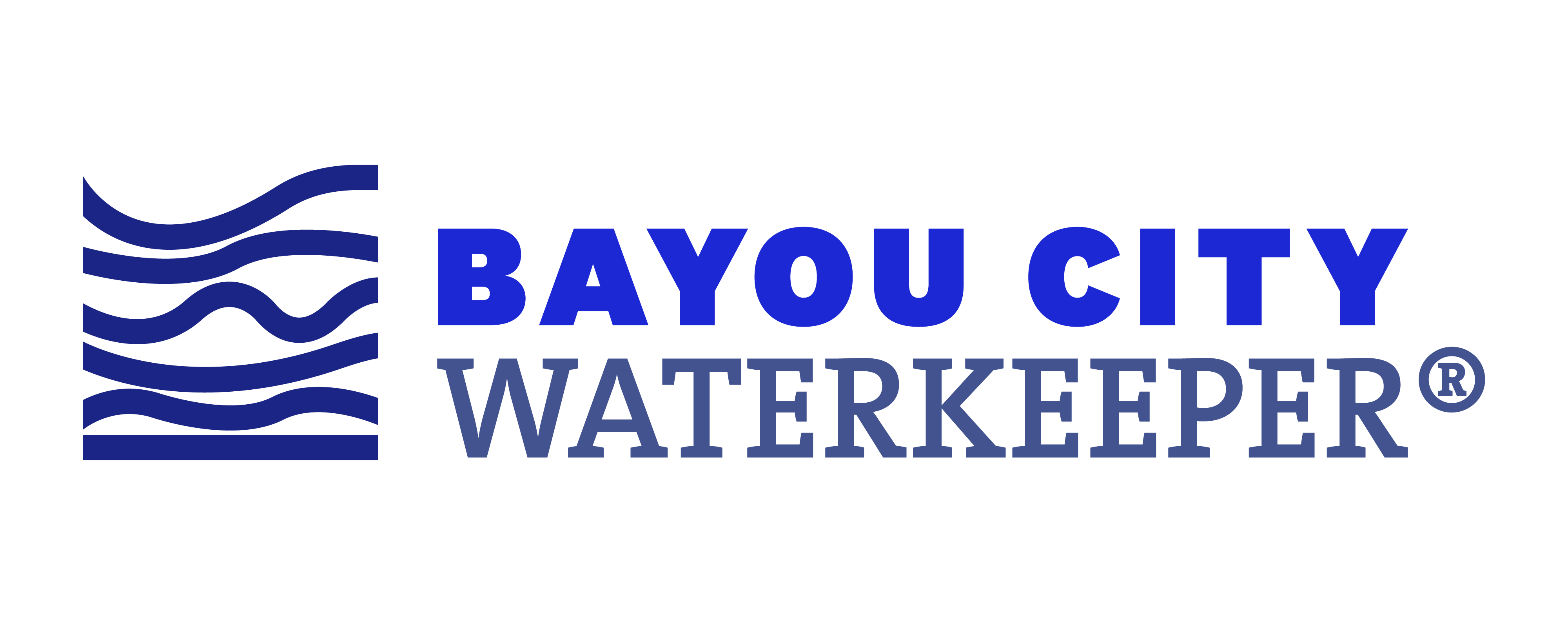[vc_row][vc_column][vc_column_text]

Ten years ago today, the Deepwater Horizon exploded, killing 11 workers and beginning an 87-day countdown of the worst offshore oil disaster in history. In 2010, I lived in New Orleans working to promote clean energy and coastal restoration throughout Southeastern Louisiana. The morning the Deepwater Horizon exploded, our immediate thoughts were with the lives lost, as well as concerns about the environmental impacts we knew were coming. Similar to Houston, industrial pollution and offshore fires and accidents are relatively commonplace along the Louisiana coast, with public health and environmental concerns often taking a backburner position in the minds of decision-makers and residents who live in safety, far away from the fenceline of industry. None of us realized the extent of damage caused by the BP Deepwater Horizon explosion in those early hours. However, as oil continued to gush from the bottom of the Gulf for 24, 36, 48 hours and on, I realized that my life, and the lives of millions of Gulf Coast residents, would significantly change.
The ecosystem and the coastal communities which relied on a functioning Gulf suffered a tragic blow by BP’s negligence and incompetence, aided by weak federal oversight and engagement. Ten years later, communities across the Gulf Coast and the ecosystem are still recovering. The lessons we should have learned about offshore drilling and corporate accountability were intentionally forgotten. Despite blue-ribbon panels and very important, very serious people making them. And to highlight the fragility of it all – just a few years later, the Trump Administration unraveled the few environmental protections and regulatory gains that were achieved, putting the nation and our ecosystem at exceptional risk.

Thankfully, the fines levied against BP are funding critical coastal restoration and science, but there should have been much more. And the damage has been done – and much of it is irreversible.Today, the Times-Picayune reports, “Every fish tested in the Gulf of Mexico has some trace of oil in it. Dolphins living in Barataria Bay have high rates of chronic lung disease and lower birth rates. And the coastal wetlands nearest the spill site may never fully recover. In general, the impacts were more acute near the wellhead. Deepwater fish populations within 200 miles of the site have dropped by between 50% to 80%. And it’s gotten quieter: The sounds of whales hunting for fish near the site has decreased.”
The challenges experienced and lessons learned are ones that we continue to apply at Bayou City Waterkeeper as we hold polluters accountable, and advocate for policies and regulations that protect and restore our waters, wetlands, and communities. No one person or organization can do this work alone. It took all of us across the Gulf Coast to ensure the RESTORE Act was passed – bringing 80% of the Clean Water Act fines associated with Deepwater Horizon down to the Gulf States to further coastal restoration – and requires all of us to continue to fight for Gulf communities, the whales, oysters, and our waters and wetlands, and to hold industry responsible and accountable for the harm they cause.
On this day of remembrance, and as we look forward to Earth Day, let’s use our collective power to take on the intersectional challenges of climate change…the global pandemic…environmental racism…and let our leaders know we are no longer the nation’s sacrifice zone. Every policy and decision should lead us to the future we want: a fair and just society where every one of us can thrive.
We can’t do this alone. Join the current as we continue our fight for healthy waters, a productive watershed, and resilient communities today and for generations to come.
[/vc_column_text][/vc_column][/vc_row][vc_row][vc_column][vc_btn title=”Donate Today” shape=”square” color=”blue” size=”lg” align=”center” button_block=”true” link=”url:https%3A%2F%2Fbayoucitywaterkeeper.org%2Fdonate||target:%20_blank|”][/vc_column][/vc_row][vc_row][vc_column][vc_empty_space height=”50px”][vc_column_text]Jordan Macha is Waterkeeper and Executive Director for Bayou City Waterkeeper. A Houston-native, she lived in New Orleans post-Katrina and worked across the five Gulf States advancing coastal restoration in the wake of the BP Oil Disaster. She now lives with her husband along White Oak Bayou, and works to promote fishable, swimmable, and drinkable water across the Lower Galveston Bay Watershed.[/vc_column_text][/vc_column][/vc_row]
